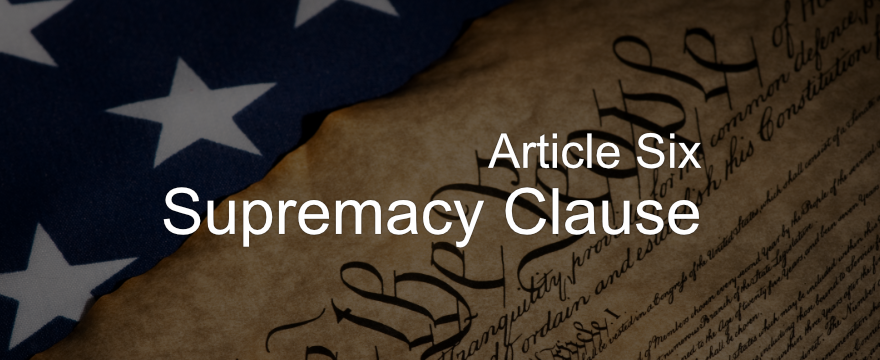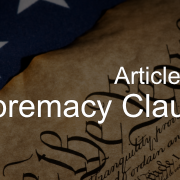Articles 6 Supremacy Clause

Every section in the Constitution is important and has specific meaning and that no less true for the section we commonly call The Supremacy Clause. However, the deliberate miseducation of the purpose and meaning of this clause has literally altered the way Americans we think about the federal government and its powers. Is it too late to turn back the tide? KrisAnne shows you hope still abounds and gives you the education to support it.



